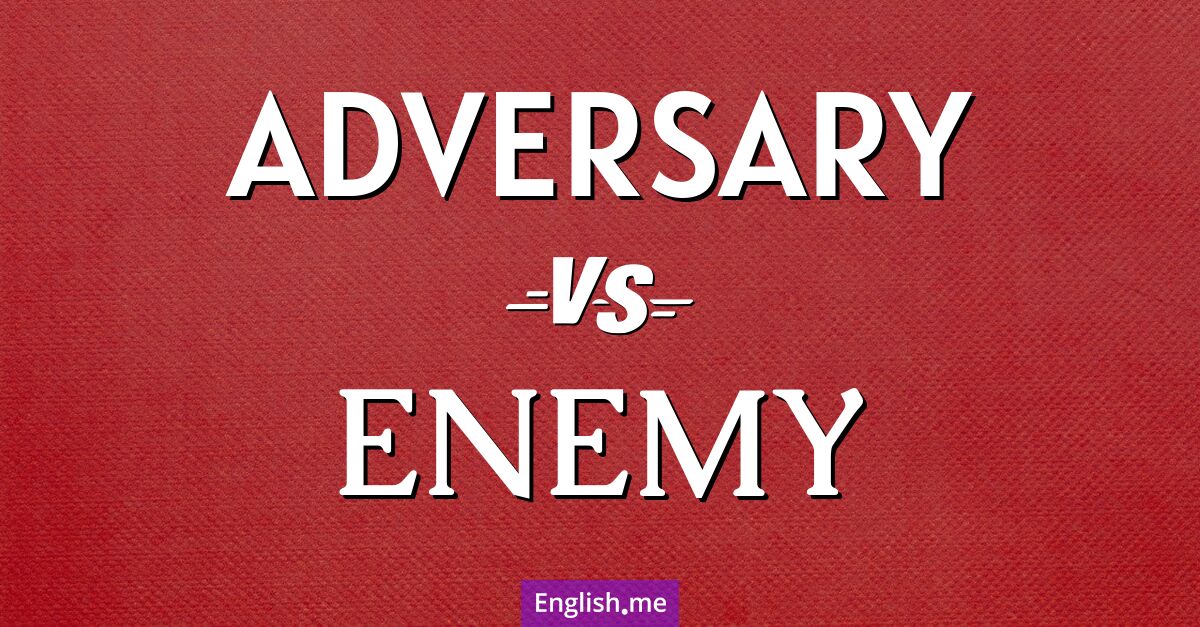"Adversary" vs. "enemy": a linguistic face-off
Reviewed and edited by  Lloyd Cooper 20/10/2024, 01:27
Lloyd Cooper 20/10/2024, 01:27
English.me team member

 What is similar?
What is similar?
Both "adversary" and "enemy" refer to someone or something that opposes or is in conflict with another. They both describe an opponent or antagonist.
 What is different?
What is different?
An "adversary" is often used in a more formal or neutral context, such as legal, sports, or competitive scenarios, without implying personal animosity. "Enemy" usually implies a more serious or hostile opposition, often with personal animosity or in a context of war or conflict.
 Which one is more common?
Which one is more common?

 Examples of usage
Examples of usage
Adversary- In the chess tournament, he faced a formidable adversary.
- The lawyer prepared to meet his adversary in court.
- During the debate, she respected her adversary's arguments even though she disagreed.
- The two nations regarded each other as enemies during the war.
- He found himself with many enemies after the contentious decision.
- The superhero fought to protect the city from his arch-enemy.

 English
English español
español française
française italiano
italiano deutsche
deutsche 日本語
日本語 polski
polski česky
česky svenska
svenska Türkçe
Türkçe Nederlands
Nederlands